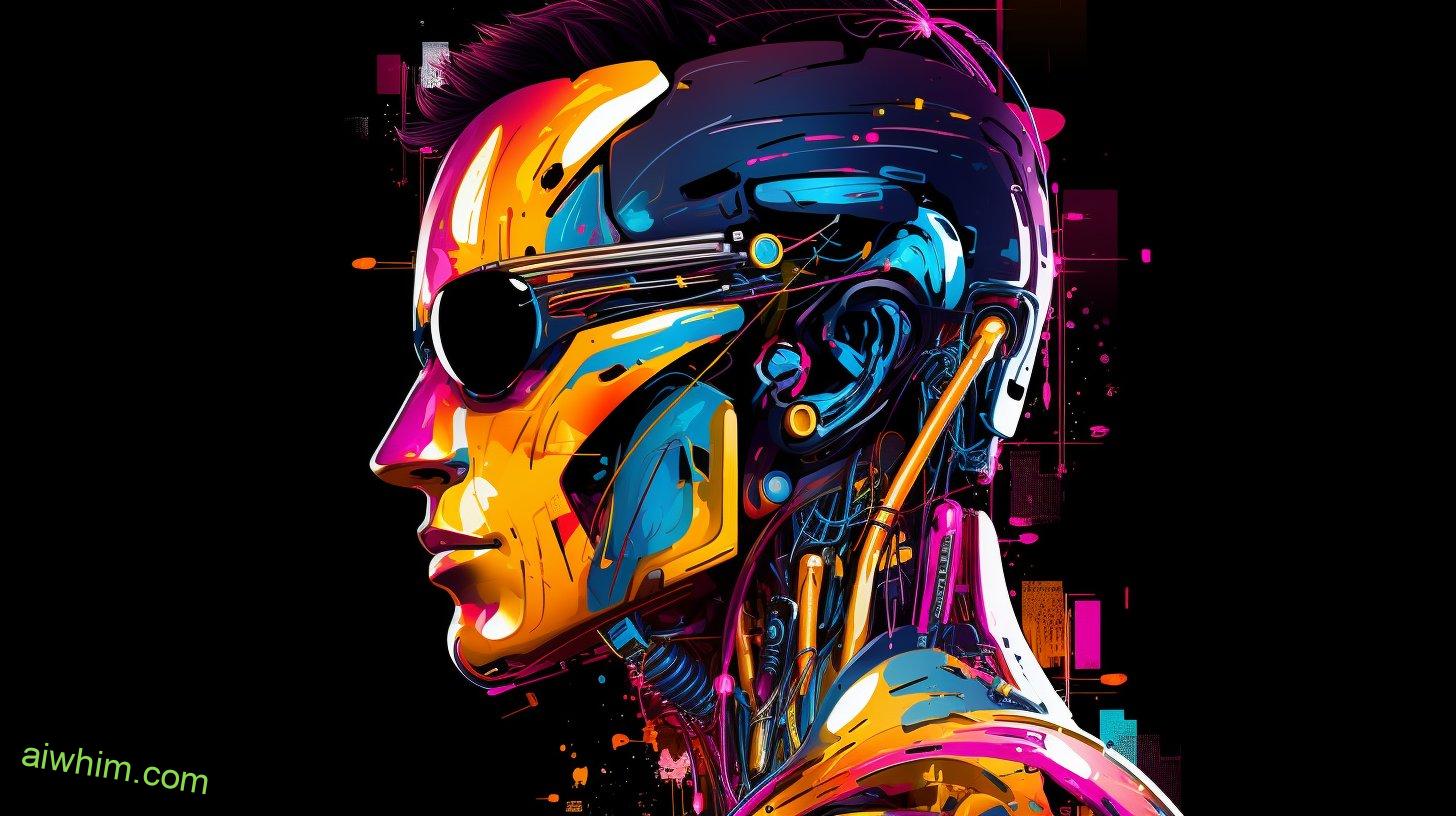They say ‘adapt or perish’ and in today’s rapidly changing world, this adage holds true for customs brokers. As the rise of artificial intelligence (AI) disrupts traditional industries, the role of customs brokers is not exempt from transformation.
But what exactly does this mean for customs brokers? How will AI impact their roles and responsibilities? In this discussion, we will explore the ways in which AI is revolutionizing the customs brokerage landscape, from automation and enhanced data analysis to improved compliance and risk management.
Strap in, because the future of customs brokers is about to get interesting.
Key Takeaways
- Customs brokerage has evolved with the integration of technology and AI-powered automation.
- AI has improved efficiency, accuracy, and reliability in customs brokerage processes.
- AI enables enhanced data analysis, streamlining import/export processes and facilitating data-driven decision making.
- AI-powered automation enhances compliance, risk management, customer service, and communication in the customs brokerage industry.

The Evolution of Customs Brokerage
Customs brokerage has undergone significant changes over the years, adapting to the advancements in technology and the increasing need for efficient global trade processes. In order to keep up with the evolving demands of the industry, customs brokers have had to embrace new tools and strategies to stay competitive.
One of the key evolutionary trends in customs brokerage has been the integration of technology into day-to-day operations. Automation and digitization have revolutionized the industry, making processes faster, more accurate, and more cost-effective. Customs brokers now utilize advanced software systems and artificial intelligence to streamline their work, reducing manual errors and increasing efficiency. This hasn’t only improved the overall speed of customs clearance but has also allowed brokers to focus on more value-added services for their clients.
However, with these advancements also come industry challenges. One of the major hurdles customs brokers face is keeping up with constantly changing regulations and compliance standards. As governments around the world implement new trade policies, brokers must stay updated and ensure their clients are in full compliance. Failure to do so can result in delays, fines, and even legal consequences. Additionally, the increasing complexity of global supply chains and the growing volume of trade pose challenges in terms of managing and coordinating shipments effectively.
Despite these challenges, the evolution of customs brokerage has provided significant benefits for the industry as a whole. The adoption of technology hasn’t only improved efficiency but has also opened up new opportunities for brokers to expand their services and cater to a broader client base. As the industry continues to evolve, customs brokers must stay agile and embrace innovative solutions to meet the demands of an ever-changing global trade landscape.

AI-Powered Automation
With the integration of artificial intelligence, customs brokers have experienced a significant shift in their workflow and operational efficiency. The implementation of AI has brought about a business transformation within the customs brokerage industry. AI-powered automation has revolutionized the way customs brokers handle their tasks, providing them with advanced tools and capabilities to streamline their processes.
AI implementation in customs brokerage has enabled the automation of repetitive and time-consuming tasks. This includes data entry, document processing, and compliance checks. By leveraging AI technologies, customs brokers can now process large volumes of data in a fraction of the time it used to take. This allows them to focus on more strategic and value-added activities, such as providing expert advice to clients and optimizing supply chain operations.
The introduction of AI-powered automation has also enhanced the accuracy and reliability of customs brokerage processes. AI algorithms are capable of analyzing vast amounts of data with precision, minimizing the risk of errors and discrepancies. This not only ensures compliance with customs regulations but also reduces the likelihood of delays and penalties. Customs brokers can now confidently provide their clients with accurate and efficient customs clearance services.
Furthermore, AI-powered automation has enabled customs brokers to offer real-time visibility and tracking capabilities to their clients. By integrating AI technologies with supply chain management systems, customs brokers can provide clients with up-to-date information on the status and location of their shipments. This level of transparency and control allows clients to make informed decisions and optimize their supply chain operations.

Enhanced Data Analysis
As AI-powered automation continues to reshape the customs brokerage industry, one notable area of transformation is the enhanced data analysis capabilities now available to customs brokers. The integration of artificial intelligence technologies in the customs brokerage process has allowed for more efficient and accurate data analysis, enabling brokers to make data-driven decisions and implement predictive modeling techniques.
In the past, customs brokers relied on manual data analysis, which was time-consuming and prone to errors. With the advent of AI, however, customs brokers now have access to advanced algorithms and machine learning models that can process vast amounts of data in real-time. This has revolutionized the way brokers analyze and interpret data, leading to more informed decision-making processes.
Data-driven decision making has become a crucial aspect of customs brokerage operations. AI-powered systems can collect, analyze, and interpret data from various sources, including trade documents, shipment records, and regulatory databases. By leveraging this data, customs brokers can identify patterns, trends, and anomalies that were previously difficult to detect. This allows them to anticipate potential risks, optimize trade processes, and provide more accurate and timely information to their clients.
Predictive modeling is another significant advancement in enhanced data analysis for customs brokers. By utilizing historical data and applying sophisticated algorithms, brokers can forecast future trends, identify potential bottlenecks, and optimize supply chain operations. This enables them to proactively address issues, mitigate risks, and improve overall efficiency.

Streamlining Import and Export Processes
To improve efficiency and optimize operations, you can streamline import and export processes by implementing AI-powered automation technologies. These technologies enable customs brokers like you to automate documentation and facilitate digital trade.
Automated documentation is a key feature of AI-powered systems. Instead of manually processing paperwork, these systems can automatically generate and submit the necessary documents, such as import and export declarations, customs clearance forms, and invoices. This not only saves you time and effort but also reduces the risk of errors and delays. With automated documentation, you can ensure that all the required paperwork is accurate and complete, allowing for smoother transactions and faster customs clearance.
In addition to automated documentation, AI-powered automation technologies also contribute to digital trade facilitation. These technologies enable you to digitize and streamline various processes, such as cargo tracking, risk assessment, and compliance checks. By digitizing these processes, you can reduce paperwork, eliminate redundant tasks, and enhance overall efficiency.
Moreover, AI-powered systems can analyze large volumes of data in real-time, providing you with valuable insights and recommendations to improve decision-making and mitigate risks.

Improved Compliance and Risk Management
By implementing AI-powered automation technologies, customs brokers can significantly enhance compliance and risk management in import and export processes. The use of AI can revolutionize the way brokers monitor and ensure adherence to regulations, leading to improved compliance and reduced risks.
With AI, brokers can automate the process of checking import and export documentation. This automation ensures that all necessary permits, licenses, and certificates are in place. AI algorithms can quickly analyze vast amounts of data, flagging any inconsistencies or discrepancies that may indicate potential compliance issues. This level of automation not only saves time and effort but also reduces the risk of human error, ensuring that all compliance requirements are met.
Furthermore, AI can help brokers identify and manage potential risks associated with trade transactions. By analyzing historical data and market trends, AI algorithms can predict potential risks and alert brokers to potential issues before they occur. This proactive approach allows brokers to take necessary precautions and mitigate risks, minimizing the impact on business operations.
Moreover, AI-powered systems can continuously monitor changes in regulations, tariffs, and trade policies. This real-time information keeps brokers informed and up to date. It enables them to make informed decisions and adapt their strategies accordingly, ensuring ongoing compliance and risk management.

Real-Time Tracking and Visibility
Implementing AI-powered automation technologies can greatly enhance real-time tracking and visibility in import and export processes for customs brokers like you. With the help of AI, you can gain access to real-time analytics and insights that can revolutionize the way you monitor and manage your supply chain.
Imagine being able to track the movement of goods at every stage of the import and export process, from the moment they leave the manufacturer to their final destination. AI technology can provide you with up-to-date information on the status and location of shipments, allowing you to proactively address any potential delays or issues. This level of visibility not only improves efficiency but also enables you to provide better customer service by keeping your clients informed every step of the way.
Real-time analytics powered by AI can also help you optimize your supply chain operations. By analyzing data from various sources, such as shipping carriers, customs agencies, and warehouses, AI algorithms can identify patterns and trends that can help you make informed decisions. For example, AI can analyze historical data to predict potential bottlenecks or areas of improvement in your supply chain, allowing you to take proactive measures to address these issues before they impact your operations.
Furthermore, AI can enable you to automate the tracking and monitoring of shipments, eliminating the need for manual data entry and reducing the risk of human error. This automation not only saves you time and resources but also ensures that you have accurate and reliable information at your fingertips.

Intelligent Customs Classification
With the enhanced visibility provided by AI-powered real-time tracking, customs brokers like you can now streamline their operations by utilizing intelligent customs classification. This innovative technology enables you to automate trade compliance and ensure smooth clearance processes.
Here are five ways intelligent customs classification can empower you to embrace freedom and efficiency:
- Increased accuracy: Say goodbye to manual classification errors! AI algorithms analyze vast amounts of data to accurately classify goods, reducing the risk of penalties and delays.
- Time savings: Imagine the freedom of no longer having to spend hours manually classifying goods. Intelligent customs classification automates this process, freeing up your valuable time to focus on more strategic tasks.
- Enhanced compliance: Compliance with ever-changing customs regulations is crucial to avoid fines and disruptions. Intelligent customs classification keeps you up-to-date with the latest rules and ensures your shipments comply with all requirements.
- Improved risk management: Identify potential risks in advance and take proactive measures to mitigate them. AI-powered tools assess risk factors such as the country of origin, product type, and compliance history to help you make informed decisions.
- Streamlined operations: Simplify your workflow by seamlessly integrating intelligent customs classification into your existing systems. This technology eliminates paperwork, reduces manual data entry, and improves overall operational efficiency.

Enhanced Customer Service and Communication
To enhance customer service and communication, you can leverage AI-powered tools and technologies as a customs broker. By incorporating automation benefits into your workflows, you can streamline processes and provide efficient services to your clients. This won’t only save time but also ensure accuracy in handling customs procedures.
AI-powered chatbots can be implemented on your website or messaging platforms to provide instant responses to customer queries. These chatbots use natural language processing algorithms to understand and respond to customer inquiries, providing timely and accurate information. This allows you to provide 24/7 support, enhancing customer satisfaction and building trust.
In addition to chatbots, AI can also be utilized to automate repetitive tasks such as document processing and data entry. This reduces the chances of human error and speeds up the overall customs clearance process. By utilizing AI algorithms, you can ensure that the required documents are accurately classified and submitted, minimizing delays and avoiding penalties.
Furthermore, AI-powered analytics tools can provide valuable insights into customer preferences and trends. By analyzing data from previous transactions, you can identify patterns and make data-driven decisions to optimize your services. This will enable you to proactively address customer needs and provide personalized solutions, leading to higher customer satisfaction.

Advanced Document Management
By incorporating advanced document management techniques, you can further enhance your efficiency as a customs broker and provide seamless services to your clients. With the help of advanced data analytics and automated workflow, you can revolutionize how you handle and process documents, saving time and effort.
Here are five reasons why advanced document management is essential for your freedom as a customs broker:
- Increased accuracy: Advanced data analytics can analyze large volumes of data and identify patterns and anomalies, minimizing errors in document processing. This accuracy ensures that your clients’ shipments comply with customs regulations, avoiding delays and penalties.
- Streamlined processes: Automated workflow systems enable you to automate repetitive tasks, such as data entry and document sorting, allowing you to focus on more critical aspects of your work. This streamlining of processes saves you time and frees you from tedious manual tasks.
- Enhanced productivity: By implementing advanced document management techniques, you can increase your productivity as a customs broker. With automated workflows, you can handle a higher volume of documents in less time, allowing you to serve more clients and expand your business.
- Improved client satisfaction: With advanced document management, you can provide faster and more accurate services to your clients. By reducing processing times and ensuring compliance, you can deliver a seamless experience that meets your clients’ expectations.
- Competitive advantage: Adopting advanced document management techniques sets you apart from your competitors. With increased efficiency and improved customer service, you can attract more clients and build a reputation as a reliable and trustworthy customs broker.

Smarter Trade Tariff Determination
Customs brokers play a crucial role in implementing smarter trade tariff determination processes. In today’s fast-paced global economy, automating trade regulations is essential for businesses to thrive. With the advancement of artificial intelligence (AI), customs brokers can now rely on AI-driven technology to streamline duty and tax calculations, making the process more efficient and accurate.
By utilizing AI technology, customs brokers can automate trade regulations, reducing the need for manual intervention and minimizing human error. Through AI-driven duty and tax calculations, the entire process becomes faster and more reliable, allowing businesses to save time and resources.
With AI, customs brokers can analyze vast amounts of data and interpret complex trade regulations with ease. This technology enables them to determine the correct tariffs and taxes applicable to different goods and commodities, ensuring compliance with international trade laws. By automating these processes, customs brokers can provide businesses with real-time tariff determinations, allowing them to make informed decisions regarding their imports and exports.
The use of AI in trade tariff determination not only benefits businesses but also promotes transparency and fairness in international trade. AI-driven systems provide consistent and unbiased calculations, ensuring that all parties involved are treated fairly. This promotes a level playing field, where businesses can compete based on the merits of their products and services rather than their ability to navigate complex trade regulations.

Predictive Analytics for Supply Chain Optimization
Predictive analytics play a crucial role in optimizing supply chains for businesses in today’s fast-paced global economy. By leveraging advanced algorithms and machine learning, these analytics help businesses forecast demand and plan their supply chain operations more effectively. Here are five reasons why predictive analytics is essential for supply chain optimization:
- Improved Efficiency: Predictive analytics enables businesses to streamline their supply chain operations by accurately predicting demand patterns. This ensures that resources are allocated efficiently, minimizing waste and reducing costs.
- Enhanced Customer Satisfaction: By accurately forecasting demand, businesses can ensure that they have the right products in stock to meet customer needs. This leads to increased customer satisfaction and loyalty.
- Reduced Inventory Costs: Predictive analytics allows businesses to optimize inventory levels by accurately predicting demand. This helps in reducing excess inventory, lowering carrying costs, and freeing up capital for other investments.
- Mitigated Supply Chain Risks: By analyzing historical data and market trends, predictive analytics helps businesses identify potential disruptions in the supply chain. This enables proactive risk management and contingency planning, reducing the impact of unforeseen events.
- Opportunity Identification: Predictive analytics not only helps businesses forecast demand but also provides insights into emerging trends and market opportunities. This allows businesses to capitalize on new opportunities and gain a competitive advantage.
In today’s dynamic and competitive business environment, supply chain forecasting and demand planning are critical for success. By harnessing the power of predictive analytics, businesses can optimize their supply chain operations, improve efficiency, reduce costs, and stay ahead of the competition. So embrace the freedom that predictive analytics provides and unlock the full potential of your supply chain.

AI-Enabled Fraud Detection
How can AI revolutionize fraud detection in supply chain operations?
Imagine a world where fraud prevention becomes more effective and efficient, thanks to the power of artificial intelligence (AI). With AI in logistics, the potential for detecting and preventing fraudulent activities within the supply chain becomes significantly enhanced.
AI-enabled fraud detection brings a new level of sophistication to the fight against fraudulent activities in the supply chain. By analyzing vast amounts of data and identifying patterns that are often invisible to the human eye, AI algorithms can quickly flag suspicious transactions or activities. This not only helps in preventing fraud but also minimizes the risk of financial losses and reputational damage for businesses.
One key advantage of AI in fraud detection is its ability to continuously learn and adapt. AI algorithms can analyze historical data, learn from previous fraud cases, and use this knowledge to detect new and emerging fraud patterns. This proactive approach enables businesses to stay one step ahead of fraudsters, constantly evolving their defense mechanisms to combat ever-changing tactics.
Furthermore, AI-powered fraud detection systems can operate in real-time, instantly flagging potential fraudulent activities as they occur. This allows businesses to take immediate action, minimizing the impact of fraudulent incidents and reducing the chances of further losses. By automating the detection process, AI frees up valuable time and resources, allowing businesses to focus on other critical aspects of their operations.

Increased Efficiency and Cost Savings
With the integration of AI technology, businesses can experience increased efficiency and cost savings in their supply chain operations. AI-powered systems can streamline processes, automate repetitive tasks, and provide real-time insights, resulting in improved productivity and operational efficiencies.
Here are five ways in which AI can bring about increased efficiency and cost savings:
- Automated data entry and processing: AI can automate data entry and processing tasks, reducing the need for manual intervention and minimizing the risk of errors. This saves time and allows employees to focus on more strategic activities.
- Optimized route planning and scheduling: AI algorithms can analyze historical data, real-time traffic information, and other variables to optimize route planning and scheduling. This leads to reduced transportation costs, improved delivery times, and enhanced customer satisfaction.
- Predictive maintenance: AI can analyze sensor data and identify patterns that indicate potential equipment failures. By predicting maintenance requirements, businesses can avoid costly disruptions, minimize downtime, and optimize the use of resources.
- Demand forecasting: AI algorithms can analyze historical sales data, market trends, and other relevant factors to provide accurate demand forecasts. This helps businesses optimize inventory levels, reduce stockouts, and minimize holding costs.
- Enhanced supply chain visibility: AI-powered systems can provide real-time visibility into the supply chain, enabling businesses to track shipments, monitor inventory levels, and identify potential bottlenecks. This improves decision-making, reduces lead times, and enhances overall operational efficiency.

Shifting Roles and Skill Requirements
To adapt to the disruptions caused by AI integration, you must embrace shifting roles and acquire new skills. The integration of artificial intelligence has led to significant changes in the customs brokerage industry, forcing professionals like you to adapt and evolve. As technology continues to advance, the traditional roles of customs brokers are shifting, creating a need for new skill requirements.
The shifting workforce in the customs brokerage industry is a direct result of technological advancements. AI systems are now capable of automating tasks that were once performed by customs brokers, such as data entry and document processing. This automation has led to increased efficiency and cost savings for businesses, but it also means that your role as a customs broker is evolving.
Instead of focusing solely on manual tasks, you now need to develop new skills to stay relevant in this changing landscape. For example, as AI takes over routine tasks, your expertise in interpreting complex regulations and navigating international trade policies becomes even more valuable. You must also become proficient in using AI tools and software to analyze data and make informed decisions.
Additionally, as the customs brokerage industry becomes more technology-driven, there’s a growing demand for professionals who can effectively manage and integrate AI systems into existing workflows. This requires a deep understanding of both the industry’s needs and the capabilities of AI technology.
Embracing these shifting roles and acquiring new skills won’t only ensure your continued relevance in the industry but also open up new opportunities for growth and advancement. By staying adaptable and continuously learning, you can position yourself as a valuable asset in an industry that’s rapidly evolving due to technological advancements.

Embracing AI for Future Success
To ensure future success, embrace AI and its potential for transforming the customs brokerage industry. Embracing digitalization and automation in logistics won’t only streamline operations but also liberate you from mundane tasks, allowing you to focus on more meaningful work.
Here are five reasons why embracing AI is crucial for your freedom and success:
- Efficiency: AI-powered systems can automate repetitive tasks, reducing manual effort and increasing productivity. This frees up your time to tackle more strategic and complex challenges.
- Accuracy: AI algorithms can analyze massive amounts of data with precision, minimizing errors and ensuring compliance with customs regulations. This accuracy instills confidence in your clients and helps you maintain a reputation for excellence.
- Cost Savings: By embracing AI, you can reduce operational costs associated with manual processes, paperwork, and human error. This allows you to allocate resources more effectively and maximize profitability.
- Enhanced Customer Experience: AI technologies enable personalized customer interactions and real-time updates, improving the overall experience for your clients. This level of service sets you apart from competitors and fosters long-term relationships.
- Adaptability: Embracing AI equips you with the tools to adapt to changing industry trends and regulations. By staying ahead of the curve, you can seize new opportunities and navigate challenges with confidence.
In a rapidly evolving industry, embracing AI is the key to unlocking your full potential as a customs broker. By leveraging digitalization and automation, you can streamline your operations, improve accuracy, reduce costs, enhance customer experience, and stay adaptable.
Embrace AI today and embrace a future of freedom and success.

Frequently Asked Questions
How Can Ai-Powered Automation Improve the Efficiency of Customs Brokerage Processes?
AI-powered automation can greatly improve customs brokerage processes. It can streamline operations, reduce manual tasks, and enhance accuracy. With AI implementation challenges and the impact on the job market, it’s important to embrace these advancements while ensuring job security.
What Role Does Enhanced Data Analysis Play in Customs Brokerage?
Enhanced data analysis, powered by AI automation, plays a crucial role in customs brokerage. It enables you to efficiently process and analyze large volumes of data, improving decision-making and streamlining operations for greater efficiency and accuracy.
How Does Real-Time Tracking and Visibility Benefit Import and Export Processes?
Real-time tracking and visibility improve your import and export processes. You’ll enjoy cost reduction through real-time updates, and your customers will be satisfied with the improved transparency and up-to-date information on their shipments.
What Are the Advantages of Intelligent Customs Classification in the Customs Brokerage Industry?
Intelligent customs classification streamlines your operations and reduces costs. With AI technology, you can automate the classification process, ensuring accuracy and efficiency. This frees up time and resources for other important tasks.
How Can Predictive Analytics Be Used to Optimize Supply Chain Processes in Customs Brokerage?
To optimize your supply chain processes in customs brokerage, use predictive analytics. It allows you to make data-driven decisions, improving efficiency and reducing costs. Embrace the power of technology for smarter operations.

Conclusion
Congratulations! You have just embarked on an exciting journey into the world of customs brokerage. With the rise of AI disruption, your role is set to transform for the better.
By embracing AI-powered automation, enhanced data analysis, and streamlined processes, you can enjoy increased efficiency, improved compliance, and cost savings.
Embrace this technological revolution and equip yourself with the necessary skills to thrive in this evolving landscape. The future is bright, and with AI by your side, success is within reach!







